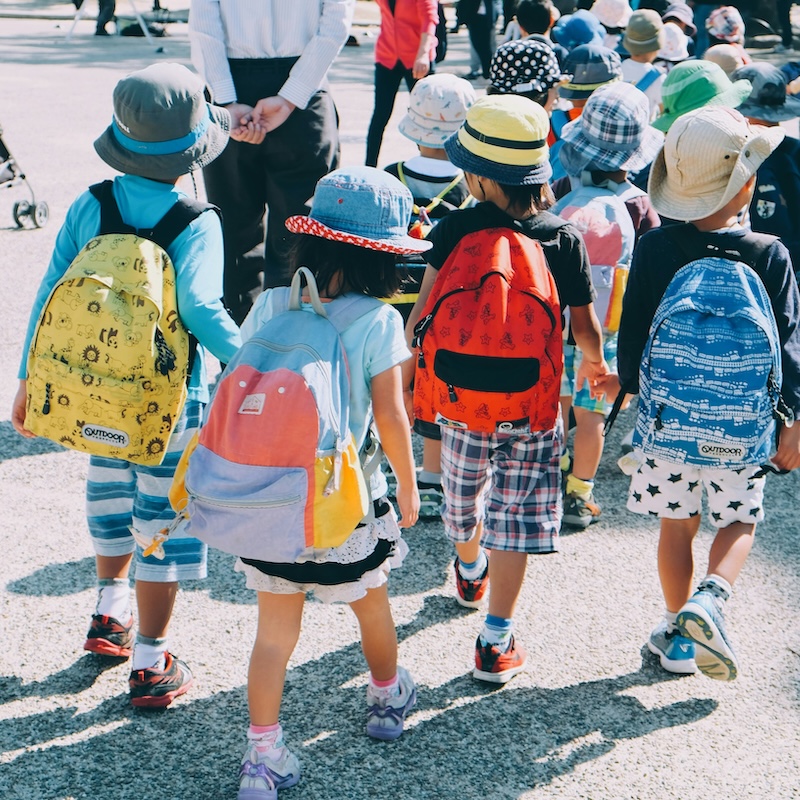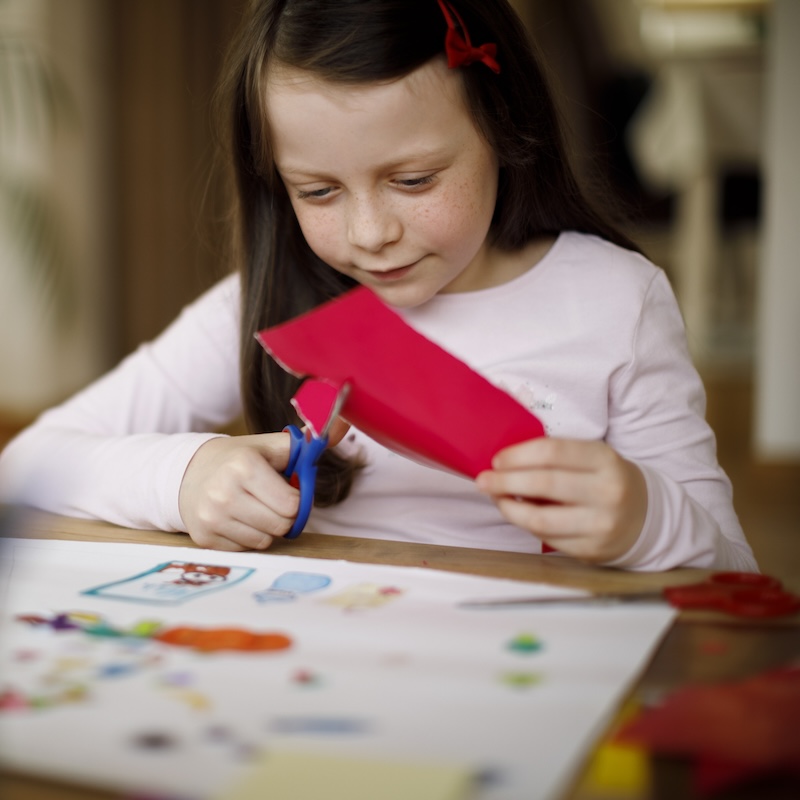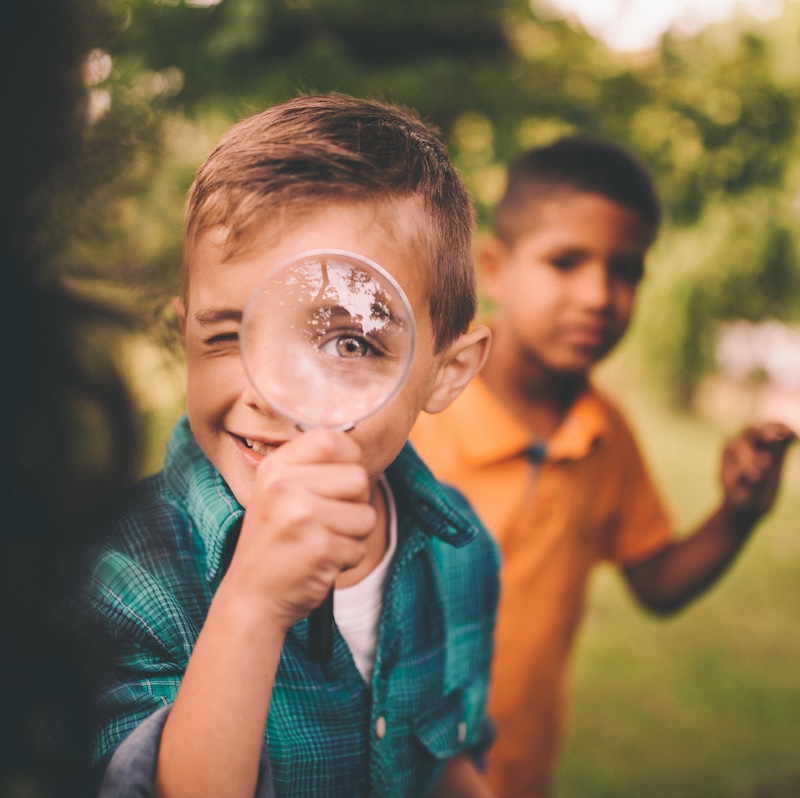
5 Common Childhood Fears and How to Handle Them
by Préscolaire Early Learning Academy | July 8, 2020
Your preschooler is just getting to know her world. She spends a lot of time scanning, watching, listening and generally figuring everything out. That is why the familiar is often very important to a preschooler. So, when something is unexpectedly different, or she is suddenly unable to see or understand, she immediately reacts with fear.
Fear is a logical, healthy reaction to the unknown. Frankly, it is what keeps us safe and helps us avoid making fatal errors in judgement. It encourages caution, and sometimes that is precisely the right approach. And while a preschooler’s fear of the dark may seem slightly irrational to you, it can be debilitating for him. For parents, there is a thin line between acknowledging that fear and allowing your child to be paralysed by it.
How Preschoolers Handle Fear
Since a preschooler’s brain is still essentially being built and neuron pathways are still in the process of forming, they may not be able to take the logical next step in allaying fears. She may not understand that it’s just her sister behind the mask or that a dog’s bark doesn’t mean imminent attack. Your child may also lack the experience to understand that the noise he hears outside is just leaves rustling in a nearby tree.
Preschoolers’ thinking is very concrete and reactionary. In other words, it captures a specific moment in time and an immediate reaction to that moment. Later, as their frontal cortex develops more fully, they will find it easier to overcome what seems like irrational fears to many adults.
What Preschoolers Fear Most
While preschoolers can develop a fear of almost anything, five specific fears are common to children at this age.
The Dark
It may seem strange that the infant who slept so happily in the dark has now developed an irrational horror of it. However, this is one of the most common fears developed by preschoolers. Your preschooler is always watching as she tries to make sense of her world, and in the dark, she is unable to do that. On top of this, her newly developed imagination can play a role. Is that shadow a monster? Or a tiger?
Change
The importance of routines for young children is well known. Routines are comforting, and changes to your habits can be very discombobulating to your preschooler. A haircut, new food or even new furniture can all prove to be a difficult adjustment. Look at this way – a child who is just learning to make sense of the world wants things to stay the same, at least until they figure it all out. This doesn’t mean change shouldn’t happen in a preschooler’s world. It just helps you understand why the unfamiliar can cause him to have such an irrational reaction.
Noises at Night
Until your preschooler can tie specific noises to a cause, they remain the great unknown and as such something to fear. While it doesn’t hurt to tell your child that the sound they are hearing is something innocuous, don’t be surprised if their fear doesn’t immediately dissipate. They may need to make those connections themselves.
Monsters and Ghosts
This fear is primarily related to a preschooler’s growing imagination and a fear of the unknown. However, it can also be tied to experience. Preschoolers are seldom able to entirely separate fantasy from reality. In a world where the line between these two concepts blurs, it is easy to see how monsters may move from the page to his closet or under his bed.
Animals
Animals are unpredictable, and most preschoolers crave predictability. What is that dog going to do? Will it lick me? Bite me? Knock me over? This fear is partially innate. Our brains are hardwired to alert us to pending danger from an animal. However, a preschooler’s burgeoning imagination gives this fear a considerable boost.
How You Can Help
You can help your preschooler by acknowledging her fear and letting her know that you understand. Don’t judge.
Encourage him to talk about his fears. If he finds it difficult to talk about the fear, offer an alternative way of expressing it. Have him tell a story or act out his fear. Try to find out what is causing the anxiety. The more you know, the more you can help them overcome it.
Prepare them for new situations and changes, especially ones they may find frightening. Books are a great way to introduce animals or visits to the hairdresser, for example.
The most important thing, experts agree, is to find a balance between rushing in to save your preschooler and altogether abandoning her to face her fears alone. If a dog is frightening her, pick her up. Comfort her, but maybe hang around for a minute to talk about the dog. Point out how fluffy it is or how long its tail is.
Most fears will lessen and disappear entirely as your preschooler ages. However, there are some things you can do to help him. The more you help her understand and manage her fears, the more sense of control you give her.
RECENT POSTS

Back to School Tips: Making the Preschool Transition Smooth and Fun
Set your child up for a successful return to preschool with these simple and supportive strategies. Make the Return to
Read More

Preparing Your Child for Their First Day at a New School
Supporting Your Child’s Transition Starting at a new school can be both exciting and nerve-wracking for children. As
Read More

Creative Recycled Art Projects for Kids
Recycled art projects are a fantastic way to spark creativity in kids while teaching them about sustainability. Here are a few
Read More

Cool Summer Science Experiments for Kids
Summer Science Fun Summer break is the perfect time to turn your home into a mini laboratory, sparking curiosity and
Read More

